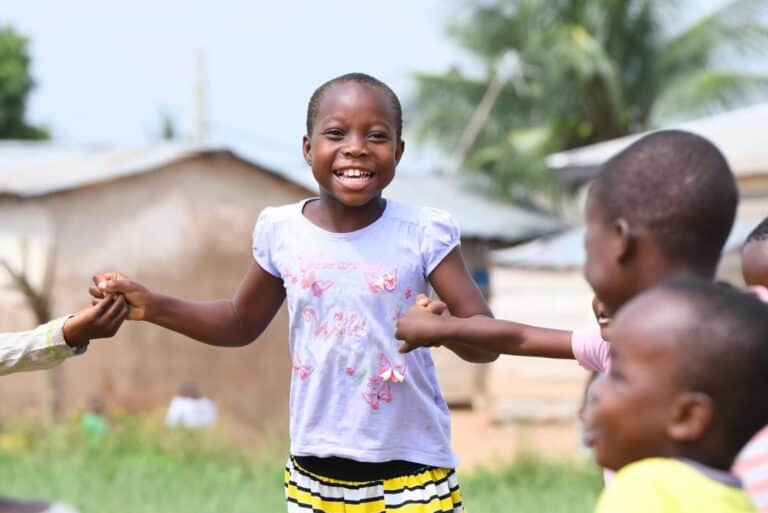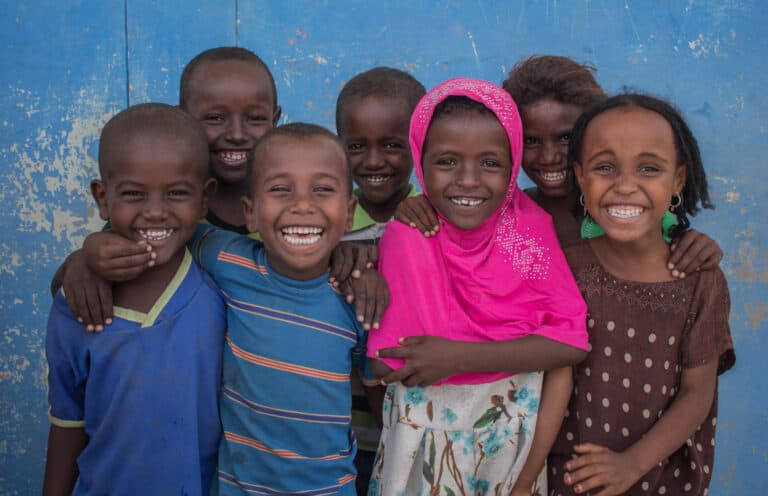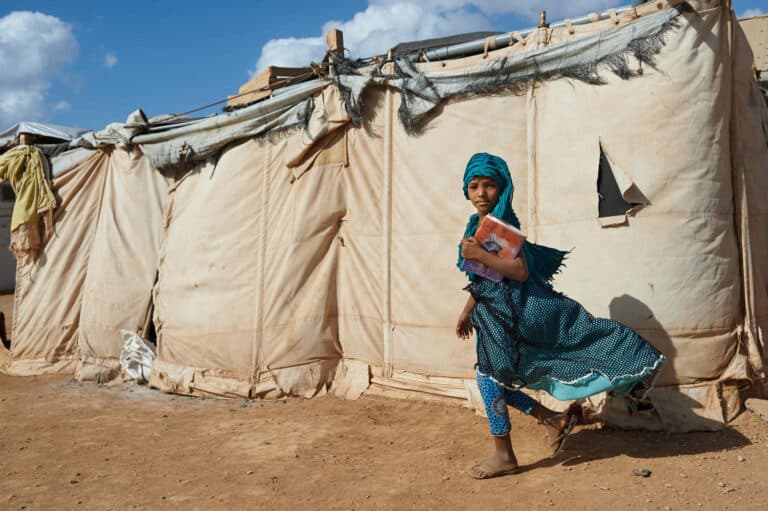The world has more information than ever before about which children are thriving, which are being left behind, and where work is needed to reach the most vulnerable. Along with this abundance of data comes an opportunity to improve the lives and living conditions of children, but to do so we must get these data where they belong when they’re needed.
To unleash the potential of data to drive results for children, UNICEF is changing the way it works with data. The new approach, which strikes a balance between driving demand, strengthening supply and enabling the use of data has been laid out in the organisation’s Data for Children Strategic Framework.
The Data for Children Catalytic Fund: Leveraging resources to translate data into meaningful change
Between 2017 and 2019, nearly two dozen UNICEF offices worked to localize that plan, developing their own strategic action plans based on local needs and opportunities. These plans revealed several areas where common data challenges need more investment. Key among these was a clear and consistent need to match offices with the resources required to help translate data into meaningful impact. These resources take many forms: finances, technology, data, talent or even just a colleague ready to share their experiences. That clearly articulated need was the driving force behind our creation of the Data for Children Catalytic Fund. The Fund aims to pool the required resources to offer a package of support to UNICEF teams for translating data into measurable change.
The Fund launched in May 2019 with an initial round of funding to support one of the most common challenges that offices around the world identified: the need to build data savvy capacity across their teams and partnerships. For country-level data plans to work best, country offices need to deepen their level of data savvy capacity – making sure that colleagues in every role are comfortable with and capable of using the data needed to do their jobs better.
This call for proposals was met with enthusiastic support across the world, bringing in 45 applications from 5 regional offices and 38 country offices; offices requested more than $3 million in total support and indicated available matching contributions of nearly half that amount. The following projects were selected based on their strong need for learning and best potential for scaling that learning to other offices:
Mozambique – Creating a data savvy course to link programming and advocacy
For effective monitoring of child rights, the Mozambique Country Office is seizing the opportunity to build data savvy capacity among programme staff who require critical data appraisal skills. The new strategy for collaboration calls for linkages and data synergies across sectors. A training workshop is also planned to develop staff capacity.
By strengthening staff capacity, discussions around data within and across sections will increase which in turn will improve support to government counterparts. Once tested, the training will be offered to technical and managerial government partners and will be adaptable and replicable for other country offices.
Panama – Launching a data savvy accelerator programme
To address high levels of inequality in Panama which disproportionately affect children and adolescents, the Panama Country Office needs appropriate quality data for allocating and prioritizing resources in their Country Programme Document, 2021–2025. The Programme Group will strengthen its data capacity by: training staff to create Strategic Evidence Plans; assessing staff’s data capacity and designing training accordingly; providing a Data Savvy Accelerator (one-on-one peer support); and pooling these resources and materials to a learning kit through an online learning platform.
This pilot will be replicable in many different country office contexts and the capacity building learning kit will be useful for government partners in Panama and beyond.
South Sudan – Strengthening the capacity of field offices to use data in response planning
South Sudan’s challenging environment for quality data collection and analysis has left data gaps, especially for routine administrative education and health data. To address this, the Country Office piloted a ‘sentinel’ system and, based on lessons learned, developed an updated strategy for 2019 focused on community-led monitoring approaches. To leverage its extensive field presence in the routine collection of data, the Country Office designed awareness raising and training sessions on data analysis for staff involved in the community-led monitoring system. Field office staff will use the Child-level Monitoring System as an entry point for jointly creating a data culture of sharing and using complementary partner data.
During the roll-out of the Child-level Monitoring System, local authorities will be trained in data quality assurance and in the use of the Ona digital tool, which is a web and app-enabled tool for monitoring real-time field data.
State of Palestine – Improving decision-making by using data on accountability to affected populations
To effectively plan and manage its humanitarian operations, the UNICEF State of Palestine office needs access to implementing partner’s Accountability to Affected Populations (AAP) data. The Country Office sees an opportunity to make the AAP guidance operational by supporting implementing partners’ systems for gathering, analysis and effective use of information on affected population’s needs, the underlying causes of those needs, their capacities and proposed solutions.
A system will be developed to aggregate data from across implementing partners into a central database in the Country Office. Eight implementing partners with sufficiently robust systems will be targeted to establish systems which can be rolled out to other implementing partners – effectively providing a humanitarian information system. The system can be scaled in two ways: to government partners in future phases of the project; and by making AAP feedback information relevant to government programmes.
West and Central Africa – Building data savvy capacity at regional- and country-level through training and leveraging organizational tools
To address the disproportionate share of inequalities faced by women and children in the region, the West and Central Africa Regional Office (WCARO) has identified eight key results for children as part of their 2018–2021 Strategic Plan. WCARO identified a need for capacity building for data use and data visualization through trainings and a support programme for regional and country office staff; as well as by supporting country offices in the production of their information platforms, leveraging organizational tools and standards which need revision.
In June 2019, a guided training for three countries – Sierra Leone, Cote d’Ivoire and Guinea – was piloted. Support from the Fund will help increase the quality of the training content. With increased staff capacity, existing business intelligence methodologies and tools will be built upon to better leverage the use of data for decision-making.
WCARO will develop knowledge sharing and exchange mechanisms for group support, collaboration and sharing of best practices around data analysis, use and visualization. Some of the data visualization tools and staff’s knowledge and skills will be shared with government partners.
What’s next?
We will keep you posted on these projects as they progress. A second call for proposals will be made in early 2020 when we’ll look forward to hearing from other UNICEF offices with identified needs, clear ideas and potential for scaling up.



